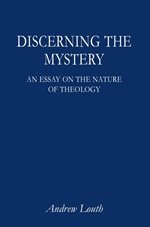Search -
Discerning the Mystery
Discerning the Mystery
Author:
This book is among the finest critiques of the Enlightenment's ways of knowing, coupled with a winsome description of a distinctly Christian alternative. Responding to what he sees as a "division and fragmentation" both in theology and the larger culture due to "the one-sided way we have come to seek and recognize truth?manifest in the way in wh... more »
Author:
This book is among the finest critiques of the Enlightenment's ways of knowing, coupled with a winsome description of a distinctly Christian alternative. Responding to what he sees as a "division and fragmentation" both in theology and the larger culture due to "the one-sided way we have come to seek and recognize truth?manifest in the way in wh... more »
ISBN-13: 9780971748361
ISBN-10: 0971748365
Pages: 150
Rating: ?
ISBN-10: 0971748365
Pages: 150
Rating: ?
0 stars, based on 0 rating




